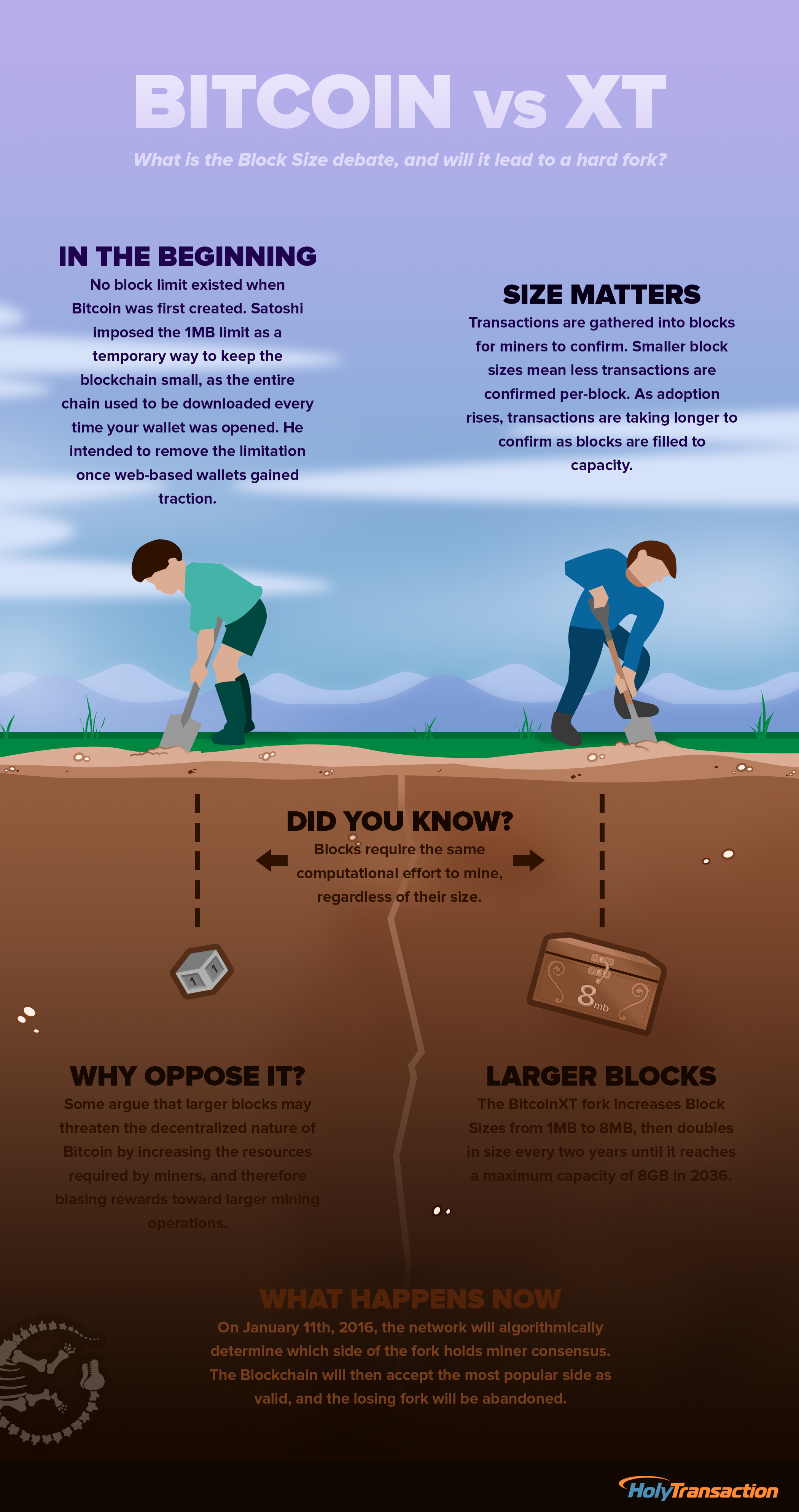
-
HolyTransaction
- Posts: 9
- Joined: Mon Oct 05, 2015 2:28 pm
What is the Block size debate? - An infographic
Hi everyone! Jeff from HolyTransaction.com here. We recently created a new infographic, and would love to know what you think. It is about the Block size debate, and whether or not it will lead to a hard fork. Our goal is to outline the basics of the discussion in simple terms for new and less technical users, in an effort to help everyone to understand why this conversation is important. What do you think?


Re: What is the Block size debate? - An infographic
"Some argue that larger blocks may threaten the decentralized nature of Bitcoin by increasing the resources required by miners, and therefore biasing rewards toward larger mining operations."
That is only a small part of the opposition to larger blocks. A more important factor is the cost of running a full node.
http://www.truthcoin.info/blog/measurin ... alization/
Also, it is not true that the network which "holds miner consensus" will win. A network could win with, for example, 30% of the hashrate, if the exchange rate of the coin with 70% hashrate crashes. Miners would then switch to the 30%, allowing it to win. However, the miner's choice is dictated by the users', not the other way around.
That is only a small part of the opposition to larger blocks. A more important factor is the cost of running a full node.
http://www.truthcoin.info/blog/measurin ... alization/
Also, it is not true that the network which "holds miner consensus" will win. A network could win with, for example, 30% of the hashrate, if the exchange rate of the coin with 70% hashrate crashes. Miners would then switch to the 30%, allowing it to win. However, the miner's choice is dictated by the users', not the other way around.
- LiteCoinGuy
- Gold Bitcoiner

- Posts: 2505
- Joined: Mon Sep 21, 2015 9:00 am
Re: What is the Block size debate? - An infographic

********************************************
More informations about Bitcoin and scaling BTC on
bitcoin.org/en/
https://bitcoincore.org/en/2015/12/23/c ... reases-faq
&
reddit.com/r/Bitcoin/
More informations about Bitcoin and scaling BTC on
bitcoin.org/en/
https://bitcoincore.org/en/2015/12/23/c ... reases-faq
&
reddit.com/r/Bitcoin/
Return to “Bitcoin Discussion”
Who is online
Users browsing this forum: No registered users and 0 guests
